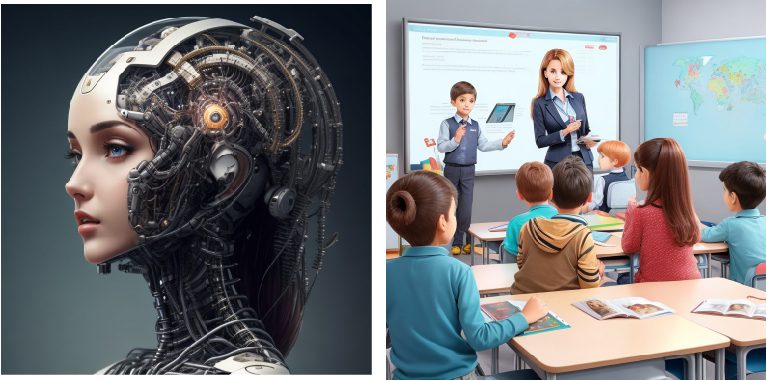Artificial intelligence (AI) has emerged as a powerful tool capable of transforming various industries, and education is no exception. The integration of AI in educational practices has the potential to revolutionize the way we teach and learn, enabling personalized and adaptive learning experiences. In this article, we will explore the innovations and best practices in leveraging AI to transform education, ushering in a new era of enhanced student engagement, improved learning outcomes, and optimized educational processes.
Personalized Learning
AI-powered platforms can analyze vast amounts of student data, including their learning preferences, strengths, and weaknesses, to create personalized learning paths. By tailoring educational content and pacing to individual students, AI promotes a more engaging and effective learning experience.
Adaptive learning systems, such as intelligent tutoring systems, can dynamically adjust the difficulty level of exercises and provide targeted feedback, ensuring students are appropriately challenged while receiving personalized guidance.
Intelligent Content Creation
AI can revolutionize content creation by automating the development of educational materials. Natural language processing (NLP) algorithms can generate interactive lessons, quizzes, and even textbooks. This automation allows educators to focus more on delivering high-quality instruction and mentoring, while AI handles the time-consuming task of content creation. Additionally, AI-powered content creation tools can facilitate multilingual education, breaking down language barriers and enabling access to educational resources in diverse contexts.
Smart Assessment and Feedback
AI-powered assessment tools can provide immediate feedback to students, enabling them to identify areas of improvement and adjust their learning strategies accordingly. Automated grading systems can efficiently evaluate assignments, quizzes, and exams, reducing the burden on educators and providing faster turnaround times. Moreover, AI can analyze student performance data in real-time, offering valuable insights to educators, allowing them to identify learning gaps and tailor their instruction to address individual student needs.
Virtual and Augmented Reality
AI combined with virtual and augmented reality (VR/AR) technologies has the potential to transform traditional classroom experiences. Immersive simulations and virtual laboratories can offer hands-on learning opportunities, enabling students to engage with complex concepts in a safe and interactive environment. AI algorithms can also analyze student interactions within these virtual environments, providing real-time feedback and personalized guidance.
Intelligent Student Support
AI-powered chatbots and virtual assistants can provide 24/7 support to students, addressing their queries, and offering personalized guidance. These intelligent systems can assist with administrative tasks, course selection, and providing reminders and notifications. By automating routine tasks, AI frees up educators’ time, allowing them to focus on more meaningful interactions with students and providing targeted support where it is most needed.
Enhanced Accessibility
AI can play a vital role in promoting accessibility in education. Through speech recognition and natural language processing, AI can assist students with disabilities in participating fully in educational activities. Real-time closed captioning and automatic transcription services can enhance learning experiences for students with hearing impairments. Furthermore, AI-powered adaptive technologies can cater to students with learning disabilities, providing customized support to help them overcome barriers and succeed academically.
Conclusion
Artificial intelligence holds immense potential to transform education by enabling personalized learning, intelligent content creation, smart assessment, virtual reality experiences, intelligent student support, and enhanced accessibility. The integration of AI in education not only enhances student engagement but also empowers educators by automating administrative tasks and providing valuable insights to optimize instruction. As we embrace these AI innovations and best practices, we can pave the way for a future where education becomes more inclusive, effective, and tailored to individual needs, preparing students for the challenges of the digital age.



































